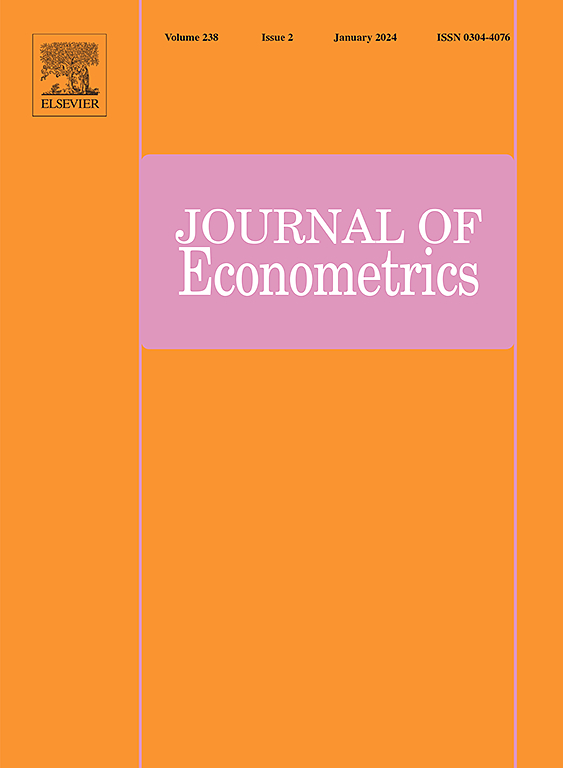Inference in cluster randomized trials with matched pairs
IF 9.9
3区 经济学
Q1 ECONOMICS
引用次数: 0
Abstract
This paper studies inference in cluster randomized trials where treatment status is determined according to a “matched pairs” design. Here, by a cluster randomized experiment, we mean one in which treatment is assigned at the level of the cluster; by a “matched pairs” design, we mean that a sample of clusters is paired according to baseline, cluster-level covariates and, within each pair, one cluster is selected at random for treatment. We study the large-sample behavior of a weighted difference-in-means estimator and derive two distinct sets of results depending on if the matching procedure does or does not match on cluster size. We then propose a single variance estimator which is consistent in either regime. Combining these results establishes the asymptotic exactness of tests based on these estimators. Next, we consider the properties of two common testing procedures based on -tests constructed from linear regressions, and argue that both are generally conservative in our framework. We additionally study the behavior of a randomization test which permutes the treatment status for clusters within pairs, and establish its finite-sample and asymptotic validity for testing specific null hypotheses. Finally, we propose a covariate-adjusted estimator which adjusts for additional baseline covariates not used for treatment assignment, and establish conditions under which such an estimator leads to strict improvements in precision. A simulation study confirms the practical relevance of our theoretical results.
配对分组随机试验中的推论
本文研究了按照 "配对 "设计确定治疗状态的分组随机试验中的推论。这里所说的分组随机试验,是指在分组水平上分配治疗的试验;这里所说的 "配对 "设计,是指根据基线、分组水平协变量将分组样本配对,并在每对样本中随机选择一个分组进行治疗。我们研究了加权均值差估计器的大样本行为,并得出了两组截然不同的结果,这取决于匹配程序是否与群组规模相匹配。然后,我们提出了一个在两种情况下都一致的单一方差估计器。将这些结果结合起来,就能确定基于这些估计器的检验的渐近精确性。接下来,我们考虑了基于线性回归构建的 t 检验的两种常见检验程序的特性,并认为这两种检验程序在我们的框架中一般都是保守的。此外,我们还研究了一种随机化检验的行为,这种检验会对成对集群的处理状态进行置换,并确定其在检验特定零假设时的有限样本有效性和渐近有效性。最后,我们提出了一种协变量调整估计器,该估计器可对未用于治疗分配的额外基线协变量进行调整,并确定了这种估计器可严格提高精确度的条件。一项模拟研究证实了我们理论结果的实用性。
本文章由计算机程序翻译,如有差异,请以英文原文为准。
求助全文
约1分钟内获得全文
求助全文
来源期刊

Journal of Econometrics
社会科学-数学跨学科应用
CiteScore
8.60
自引率
1.60%
发文量
220
审稿时长
3-8 weeks
期刊介绍:
The Journal of Econometrics serves as an outlet for important, high quality, new research in both theoretical and applied econometrics. The scope of the Journal includes papers dealing with identification, estimation, testing, decision, and prediction issues encountered in economic research. Classical Bayesian statistics, and machine learning methods, are decidedly within the range of the Journal''s interests. The Annals of Econometrics is a supplement to the Journal of Econometrics.
 求助内容:
求助内容: 应助结果提醒方式:
应助结果提醒方式:


